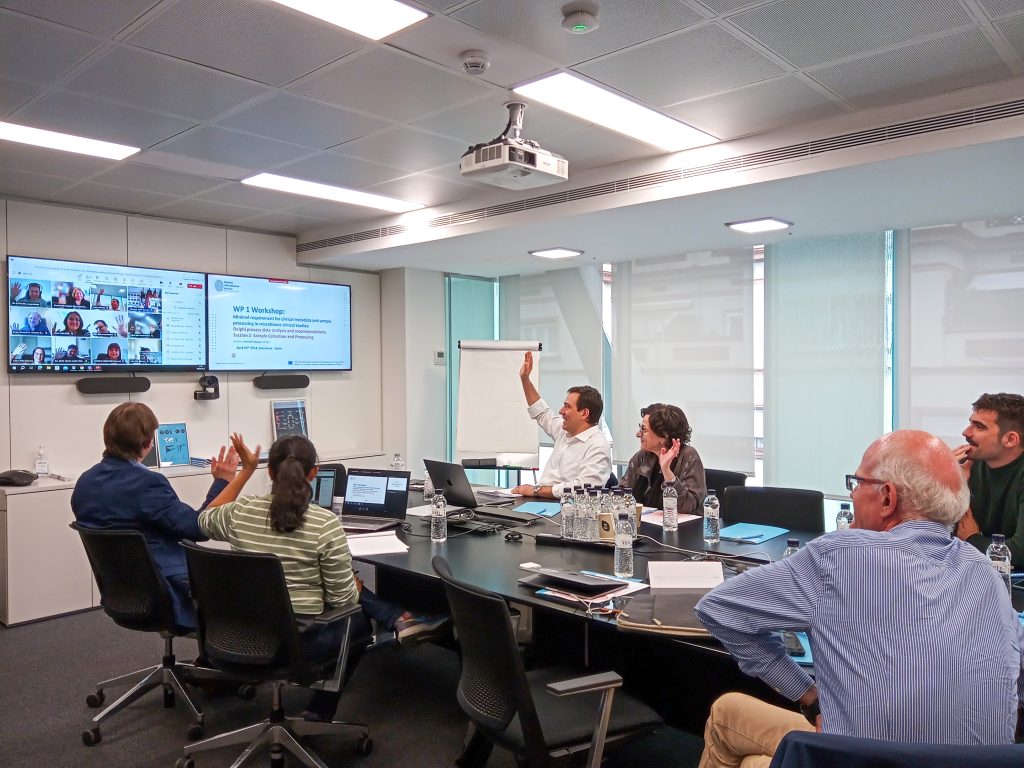Menu

The HMA Consortium has finalized the Delphi process, a structured communication method gathering insights and opinions from a panel of experts, to propose a set of guidelines aimed at standardizing clinical metadata and sample processing in microbiome clinical studies. This initiative is crucial for designing clinical trials that are consistent and reproducible across different research settings.
The two-round Delphi process, involved 72 scientists and experts in the first round and 61 in the second round, achieving an 85% participation rate from the initial to the final round. This high level of engagement reflects the commitment of the scientific community to improving quality standards for clinical studies, as well as reproducibility and comparability of microbiome samples.
With the rapid advancement of omics technologies, thousands of microbiome datasets have been deposited in public repositories. However, the lack of common standards for data and metadata has made it challenging to generalize research findings. The HMA Consortium’s recent efforts aim to mitigate these challenges by establishing standardized protocols for metadata collection, sample processing, and data sharing.
Several critical areas were addressed during the Delphi process, including the selection of essential clinical metadata, dietary information, and laboratory data required for microbiome-based clinical studies. Additionally, the process attempted to develop standard operating procedures for the treatment and processing of samples and to outline the collection of both direct and indirect microbiome-related outcomes.
“Consensus on these topics will enable the community to improve the consistency and comparability of clinical microbiome studies in the future”, Trebicka says.
The results of the Delphi survey were preliminarily presented on 29 April 2024 during a workshop organized at the EF CLIF headquarters in Barcelona, Spain. This event was a collaborative effort involving partners European Molecular Biology Laboratory (EMBL),
European Biomedical Research Institute of Salerno (EBRIS), Odense University Hospital (OUH) , and Pharmabiotic Research Institute (PRI). The findings and recommendations from this survey are expected to provide a robust framework that the broader scientific community can adopt, contributing to harmonization in microbiome-based clinical research.
“The involved partners will publish and disseminate these recommendations in a joint publication. In order to ensure the applicability of the standards in the future, it is planned to transfer the results to the newly founded European Microbiome Centres Consortium (EMCC), where in the future a task group can take care of the maintenance and adaptation of the standards in a very dynamically developing microbiome field”, Trebicka adds.

This study received funding from the European Union’s Horizon 2020 research and innovation programme under grant agreement no. 946590.
European Foundation for the Study of
Chronic Liver Failure
Avinguda Diagonal 477, 11th floor
08036 Barcelona, Spain
Tel: +34 93 227 14 00
Email: Send us an email
© 2025 European Foundation for the Study of Chronic Liver Failure

| Cookie | Duration | Description |
|---|---|---|
| cookielawinfo-checkbox-analytics | 11 months | This cookie is set by GDPR Cookie Consent plugin. The cookie is used to store the user consent for the cookies in the category "Analytics". |
| cookielawinfo-checkbox-functional | 11 months | The cookie is set by GDPR cookie consent to record the user consent for the cookies in the category "Functional". |
| cookielawinfo-checkbox-necessary | 11 months | This cookie is set by GDPR Cookie Consent plugin. The cookies is used to store the user consent for the cookies in the category "Necessary". |
| cookielawinfo-checkbox-others | 11 months | This cookie is set by GDPR Cookie Consent plugin. The cookie is used to store the user consent for the cookies in the category "Other. |
| cookielawinfo-checkbox-performance | 11 months | This cookie is set by GDPR Cookie Consent plugin. The cookie is used to store the user consent for the cookies in the category "Performance". |
| viewed_cookie_policy | 11 months | The cookie is set by the GDPR Cookie Consent plugin and is used to store whether or not user has consented to the use of cookies. It does not store any personal data. |